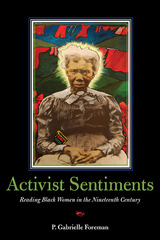
Activist Sentiments takes as its subject women who in fewer than fifty years moved from near literary invisibility to prolific productivity. Grounded in primary research and paying close attention to the historical archive, this book offers against-the-grain readings of the literary and activist work of Harriet Jacobs, Harriet Wilson, Frances E. W. Harper, Victoria Earle Matthews and Amelia E. Johnson.
Part literary criticism and part cultural history, Activist Sentiments examines nineteenth-century social, political, and representational literacies and reading practices. P. Gabrielle Foreman reveals how Black women's complex and confrontational commentary–often expressed directly in their journalistic prose and organizational involvement--emerges in their sentimental, and simultaneously political, literary production.
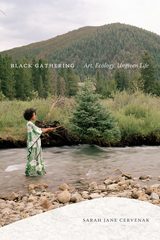
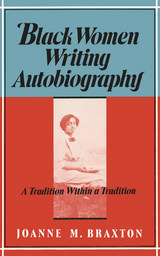

In these 20 interviews with women writers of fiction, Jordan, who teaches at Hampton University in Virginia, attempts to plumb the relations between black and white women in fiction and in life, and to explore the creative process. Although the book suffers from lengthy discussions of somewhat obscure work, the interviewees, most of whom have portrayed female characters of a race other than their own, offer intriguing, often conflicting observations about the primacy of race, gender or class. Kaye Gibbons ( Ellen Foster ) suggests that rural locations offer commonality to black and white Southern women; Marita Golden ( Long Distance Life ) observes that white writers emphasize female beauty while black writers focus on character. This book may be a useful supplement to literature courses.
From Library Journal
The message derived from the candid and articulate women interviewed here is, as Belva Plain states, "you learn as you live together." Editor Jordan (Hampton Univ., Virginia) has opened a dialog on writing and race relations by publishing these interviews with 20 significant contemporary black and white women writers, from Alice Childress and Joyce Carol Oates to Mildred Pitts Walker. The substance of these writers' thoughts is that the commonality of women's experience informs the genuine portrayal of a character as much as does the writer's understanding of her blackness or whiteness. This special book, so different from others that examine the writing process, is likely to stimulate dialog among women and to provoke serious study of many excellent women writers working today. Recommended for all collections supporting the study of literature, women's studies, and race relations.
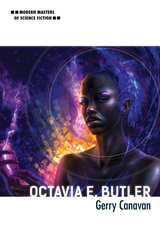
Gerry Canavan offers a critical and holistic consideration of Butler's career. Drawing on Butler's personal papers, Canavan tracks the false starts, abandoned drafts, tireless rewrites, and real-life obstacles that fed Butler's frustrations and launched her triumphs. Canavan departs from other studies to approach Butler first and foremost as a science fiction writer working within, responding to, and reacting against the genre's particular canon. The result is an illuminating study of how an essential SF figure shaped themes, unconventional ideas, and an unflagging creative urge into brilliant works of fiction.
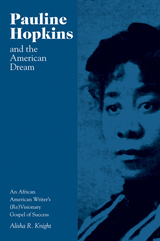
Pauline Elizabeth Hopkins was perhaps the most prolific black female writer of her time. Between 1900 and 1904, writing mainly for Colored American Magazine, she published four novels, at least seven short stories, and numerous articles that often addressed the injustices and challenges facing African Americans in post–Civil War America. In Pauline Hopkins and the American Dream, Alisha Knight provides the first full-length critical analysis of Hopkins’s work.
Scholars have frequently situated Hopkins within the domestic, sentimental tradition of nineteenth-century women's writing, with some critics observing that aspects of her writing, particularly its emphasis on the self-made man, seem out of place within the domestic tradition. Knight argues that Hopkins used this often-dismissed theme to critique American society's ingrained racism and sexism. In her “Famous Men” and “Famous Women” series for Colored American Magazine, she constructed her own version of the success narrative by offering models of African American self-made men and women. Meanwhile, in her fiction, she depicted heroes who fail to achieve success or must leave the United States to do so.
Hopkins risked and eventually lost her position at Colored American Magazine by challenging black male leaders, liberal white philanthropists, and white racists—and by conceiving a revolutionary treatment of the American Dream that placed her far ahead of her time. Hopkins is finally getting her due, and this clear-eyed analysis of her work will be a revelation to literary scholars, historians of African American history, and students of women’s studies.
Alisha Knight is an associate professor of English and American Studies at Washington College. Her published articles include “Furnace Blasts for the Tuskegee Wizard: Revisiting Pauline E. Hopkins, Booker T. Washington, and the Colored American Magazine,” which appeared in American Periodicals.
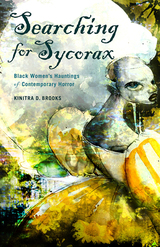
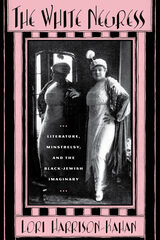
Lori Harrison-Kahan examines writings by Edna Ferber, Fannie Hurst, and Zora Neale Hurston, as well as the blackface performances of vaudevillian Sophie Tucker and controversies over the musical and film adaptations of Show Boat and Imitation of Life. Moving between literature and popular culture, she illuminates how the dynamics of interethnic exchange have at once produced and undermined the binary of black and white.
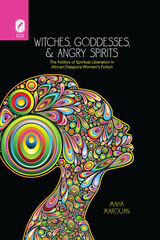
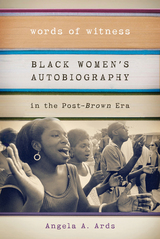
Exploring works by the critically acclaimed June Jordan and Edwidge Danticat, as well as by popular and emerging authors such as Melba Beals, Rosemary Bray, and Eisa Davis, Ards demonstrates how each text asserts countermemories to official—and often nostalgic—understandings of the civil rights and Black Power movements. She situates each writer as activist-citizen, adopting and remaking particular roles—warrior, “the least of these,” immigrant, hip-hop head—to crystallize a range of black feminist responses to urgent but unresolved political issues.
READERS
Browse our collection.
PUBLISHERS
See BiblioVault's publisher services.
STUDENT SERVICES
Files for college accessibility offices.
UChicago Accessibility Resources
home | accessibility | search | about | contact us
BiblioVault ® 2001 - 2024
The University of Chicago Press









